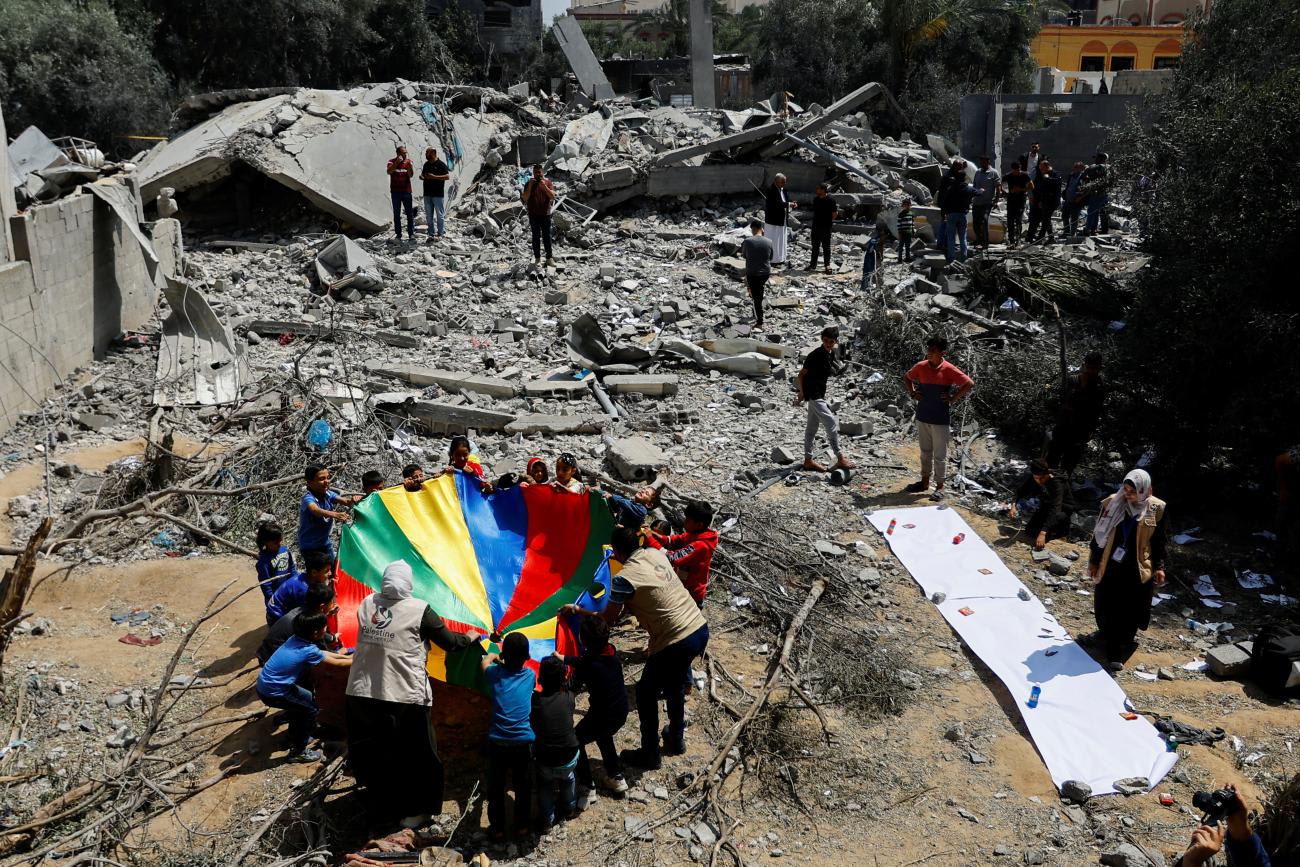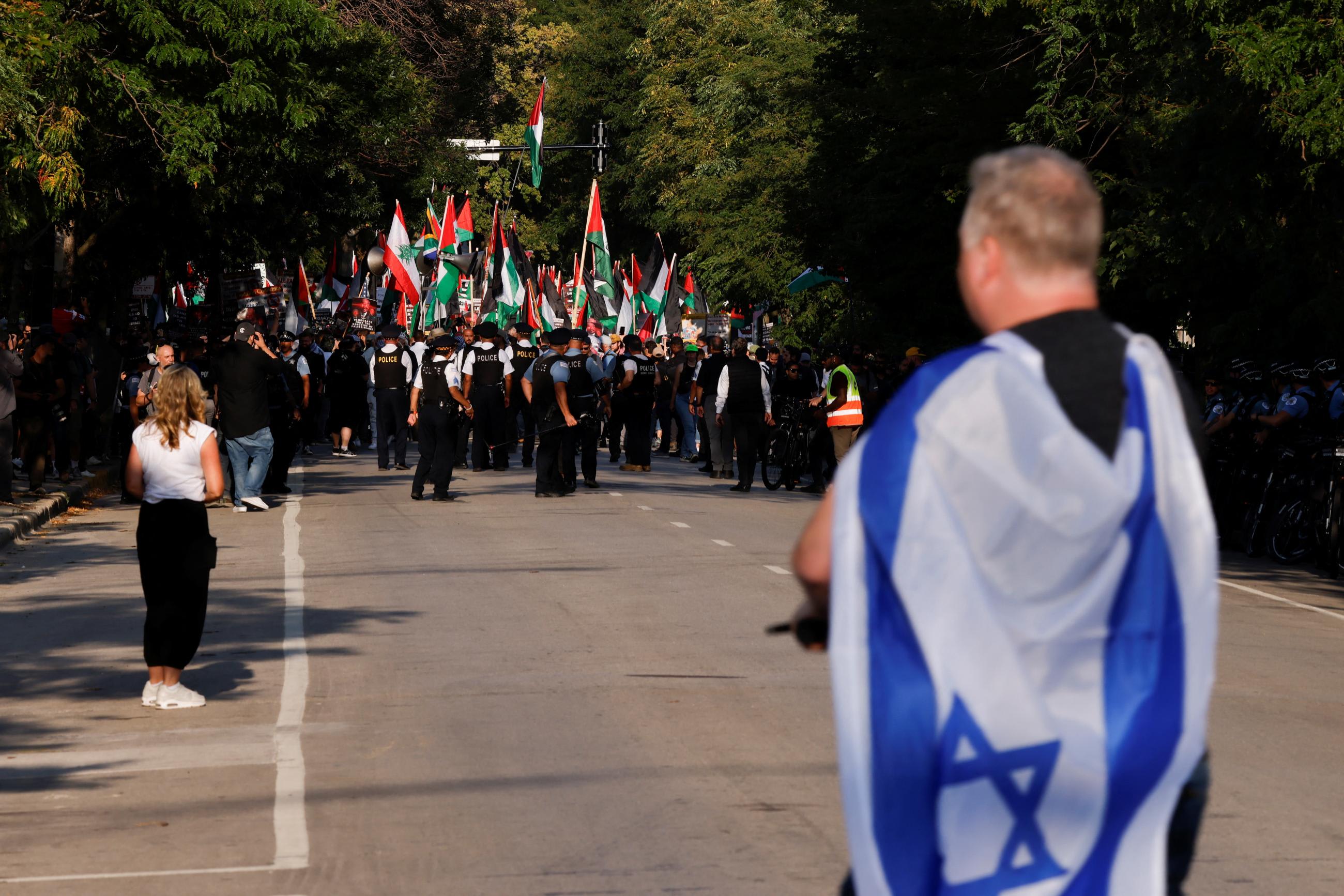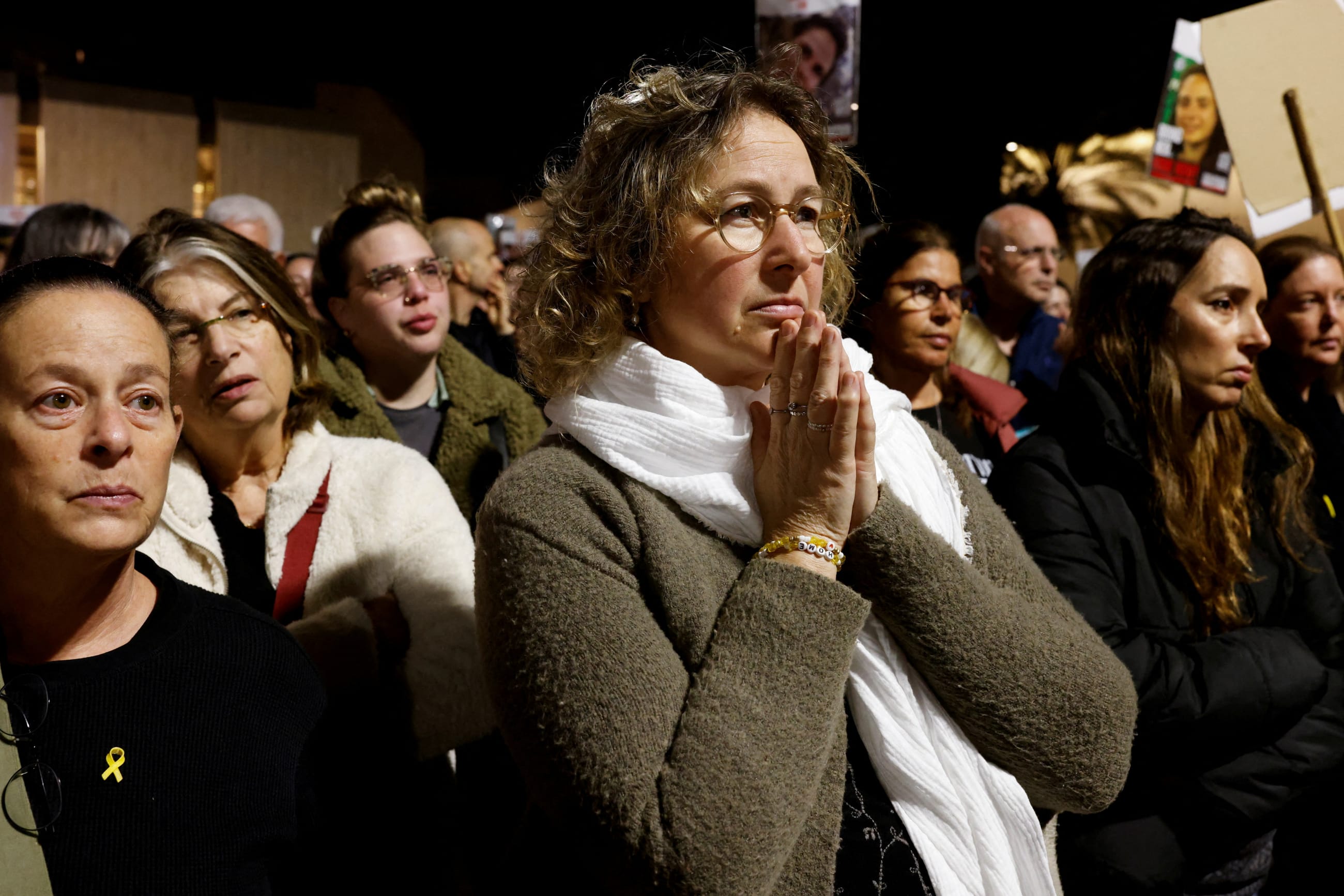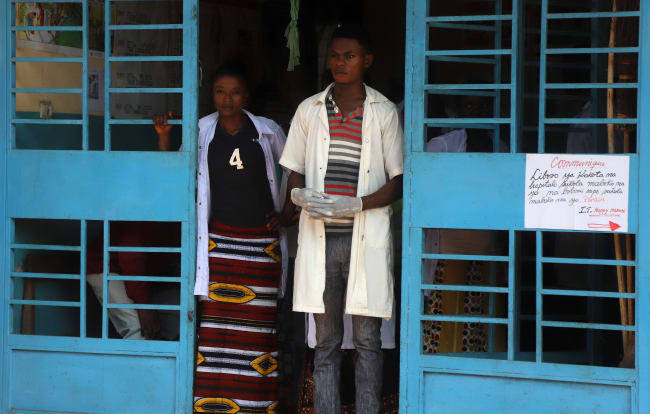Many adolescents in the United States are grappling with the rising rates of antisemitism and Islamophobia that have surged following the October 7 Hamas attack on Israel and Israel's expanding wars in Gaza and with Iran's military surrogates in the region. Extensive research shows that experiencing these kinds of discrimination can put young people at further risk of suicide and other mental and behavioral health challenges.
This strain comes as the United States faces an adolescent mental health crisis: more than 1 in 5 high school students considered suicide in 2021. These risks continue to rise each year, even for preteens. One recent study, for example, found that the suicide rate for youth aged 8 to 12 years has increased by about 8% annually since 2008.
Although the wars in the Middle East have undoubtedly sharpened political and ethnic divides in the United States, everyone should be united in their concern over the conflict's indirect harms to this country's youth. More attention and resources should be devoted not only to safeguarding students of Arab, Jewish, and Muslim backgrounds from violence, but also to encouraging healthy coping strategies in these stressful and divisive times.
In our Study of Adolescent Lives After Migration to America, we surveyed and spoke with more than 500 high school students, caregivers, and service providers across the United States to better understand adolescent mental health and coping strategies. The research focused on adolescents who were born in the Middle East and North African region—or whose parents were—but the lessons learned are applicable to adolescents from varying backgrounds as they navigate violence and discrimination and develop their sense of identity and belonging. Through this research and our lived experiences as a Jewish American and an Arab American, we offer insights for supporting adolescents as they cope with the wars in the Middle East and the resulting surge in discrimination.
First, our findings suggest that service providers, policymakers, and other civil society leaders should assess the different ways that these youth encounter and understand the ongoing and expanding conflict in the Middle East, including through rising rates of antisemitism and Islamophobia. Second, we recommend celebrating and promoting access to existing resources in young people's communities that help them cope with these experiences in healthy ways. Finally, we encourage educators, youth program designers, and other relevant stakeholders to promote the cross-cultural exchange of information and resources between adolescents to enhance mutual recognition and empathy.
How Adolescents Experience War and Its Turmoil
As a first step toward bolstering healthy and effective coping skills and strategies, educators, program planners, and other decision-makers should try to understand how students with connections to the Middle East are experiencing and understanding the expanding conflicts in the region.
Everyone should be united in their concern over the conflict's indirect harms to this country's youth
The wars reach young Americans around the country every day, whether in conversations with their relatives and friends in the region, on news and social media channels, or in experiences of racial discrimination and violence in their daily lives. In response, high school students have joined protest movements in several cities, and schools have struggled with how to respond to students' interest in the fighting while maintaining a sense of safety and a space of open civic discourse.
Our research suggests that, even if these students are far from the battlefield, such experiences can generate considerable stress and shape the way that adolescents think about their self-identity and sense of belonging. Indeed, previous research has found significant connections between exposure to wartime violence via social media, for example, and adolescent mental distress, including symptoms of posttraumatic stress.
When service providers and caregivers ignore, minimize, or dismiss how the turmoil of war affects young people in the United States, they throw away a unique opportunity to become a source of support. Our research shows that Arab and Arab American teenagers tend to avoid turning to their parents when they feel sad or upset, preferring to lean on their friends instead.
As one Palestinian student explained, "many parents don't believe in mental health as an issue," so she and her peers have had to look elsewhere. But these students also tended to avoid seeking help from their educators and school counselors, whom they described as out of touch with their ethnic identities and home country context.
Research shows that when caregivers, educators, and other adults in adolescents' lives listen with intention and attentiveness, adolescents are more likely to report improved mental well-being and to disclose instances of psychological harm. Students themselves share that they are drawn to educators who are "patient, respectful, and nonjudgmental," according to an article in the Middle School Journal.
Making a point to seek out, actively listen to, and validate Arab, Jewish, and Muslim students' experiences of the wars and subsequent discrimination can go a long way in supporting their mental health in the long term.

Supporting Adolescents Within Their Communities
The second step in supporting these adolescents is to connect them to resources in their neighborhoods, networks, and broader cultural communities that can both protect them from harm and help them make sense of their experiences.
In 2021, our team conducted a PhotoVoice program with first- and second-generation Arab high school students in Dearborn, Michigan, the first Arab-majority city in the United States. Across several participatory sessions, students shared photographs of their lives with a small peer group and reflected on how different aspects of their ethnic identities shaped their well-being.
For example, we spoke with a student who had been harassed repeatedly for her Palestinian identity during the 2021 solidarity protests. Palestine is "not on the map for a reason," her aggressor reportedly told her, "like you don't exist." The student said such experiences of erasure "made me feel sad," but also recounted how participating in peaceful protests with the wider Arab community helped her maintain a sense of identity and belonging. "During the Palestinian protest," she said, "people showed their true support and that helped me feel like I belonged again."
In a personal essay published in Hillel, a Jewish student similarly reflected on the positive impact that participating in protests can have on one's sense of belonging and overall well-being. After hearing an antisemitic speech on her college campus, the student came across a Jewish solidarity event, as she noted, "my heart and soul felt full as we sang, danced, and expressed joy in our Jewish identities." These examples are supported by a rapidly growing literature finding that a sense of belonging can promote young people's mental health and protect them from harm. In our study, for instance, we found that students who felt a greater sense of school belonging had lower risks of suicide ideation.
Resources that celebrate the very dimensions of one's identity that may also put them at risk—such as Detroit's Arab American National Museum or Jewish Student Unions—can help students cope in numerous ways. Beyond facilitating social support among peers with shared experiences, these spaces can bolster feelings of solidarity and collective efficacy among participants. Often such clubs give rise to collective action, for example, through awareness-raising campaigns or fundraisers, serving as an outlet for adolescents to channel their fear, distress, and anger in a healthy way.
Promoting Coping Across Lines of Difference
As a third step, caregivers and community organizations should also identify and highlight any overlap across ethnic groups—whether in terms of needs, values, or beliefs—to move toward sustainable and long-term change in well-being. Cross-cultural events, such as a potluck cohosted by the American Arab American Heritage Club and Jewish Student Alliance at a high school in Denver, can help students recognize similarities in each other.
With established boundaries and intentionality, this type of dialogue can take place in the classroom as well. During interviews we conducted at a high school in Dearborn, Michigan, for example, a Jewish teacher who worked primarily with Arabic-speaking students emphasized her focus on learning about "the things that we have in common more than the things we have different."
This mutual recognition can guard against the harmful processes of Othering and polarization that are so common in war and its fallout
School-based antibullying programs offer another potential opportunity to facilitate cross-cultural discussions. With their focus on socially acceptable behavior, social emotional learning, and bystander intervention, these programs have become critical for safeguarding students' physical and mental well-being. Few antibullying interventions, however, explicitly incorporate dialogue across racial, ethnic, or national groups. Unfortunately, evidence on what works to promote intercultural competence at the school level is mixed, highlighting the need for more research into the factors that determine program effectiveness in fostering cross-cultural exchange and friendships.
Efforts to cultivate empathy need not always involve direct interaction between groups, however. Take, for instance, this school-based intervention, implemented separately with Jewish and Arab students in Israel. Facilitated sessions that focused on emotional intelligence and empathy, though homogenous in group composition, resulted in improved relationships across the two groups.
This mutual recognition can guard against the harmful processes of Othering and polarization that are so common in war and its fallout. By creating safe space for Arab, Jewish, and Muslim adolescents to realize they hold similar fears and values, we can encourage a more civil and productive exchange of differing views.
As we write this piece, we also struggle to process the steady onslaught of pain we witness online and the growing polarization among our Arab and Jewish family members and friends. We recall earlier experiences of Islamophobia and antisemitism in our own school days, such as in the aftermath of 9/11, and the caregivers and educators that helped us integrate these hardships into a healthy sense of ethnic identity.
As the adults in the room now, we know we need to set healthy examples. Teachers, caregivers, and communities alike need to encourage adolescents to seek necessary, preferred, and identity-affirming support. Most important, we need to examine how we talk about the conflict, each other, and our future.

EDITOR'S NOTE: This story includes discussion of suicide. If you or someone you know needs help in the United States, please call the National Suicide and Crisis Lifeline: 988












